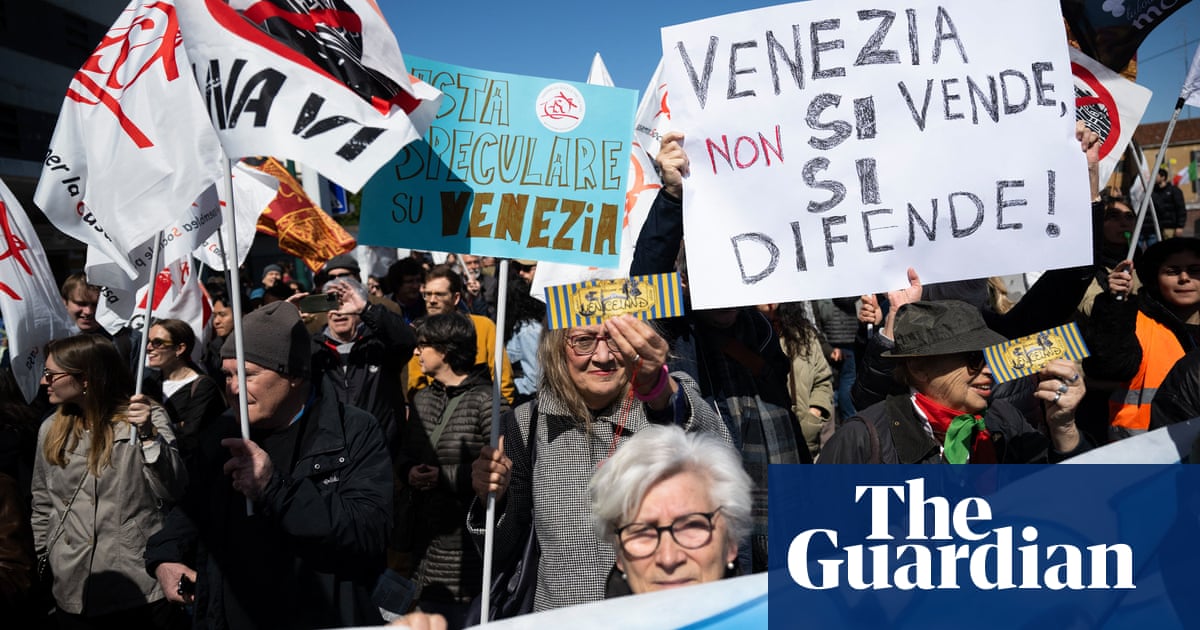Day-trippers will have to pay €5 to visit Italian city under scheme designed to protect it from excess tourism
Authorities in Venice have been accused of transforming the famous lagoon city into a “theme park” as a long-mooted entrance fee for day trippers comes into force.
Venice is the first major city in the world to enact such a scheme. The €5 (£4.30) charge, which comes into force today, is aimed at protecting the Unesco world heritage site from the effects of excessive tourism by deterring day trippers and, according to the mayor, Luigi Brugnaro, making the city “livable” again.
But several residents’ committees and associations have planned protests for Thursday, arguing that the fee will do nothing to resolve the issue.
“I can tell you that almost the entire city is against it,” claimed Matteo Secchi, who leads Venessia.com, a residents’ activist group. “You can’t impose an entrance fee to a city; all they’re doing is transforming it into a theme park. This is a bad image for Venice … I mean, are we joking?”



That’s only for vehicles. It isn’t the same thing.
It’s essentially the same thing. Too many people are coming, so charge them a fee. The only reason Venice is per person and not per vehicle is that it’s an island, it’s not like you can drive there.
It may seem like that to the average american, but nobody with more than 1 braincell drives in London. Even when your the congestion charge, you’re basically always better off walking or taking the Underground.
This prevents cars, not people. They’re very much not the same thing.
Polluting vehicles are not the same as people… you know that, right? The reason for the ULEZ is to keep emissions low, not restrict tourism
You can drive in Venice. Well, you could if you’d removed all the tourists.